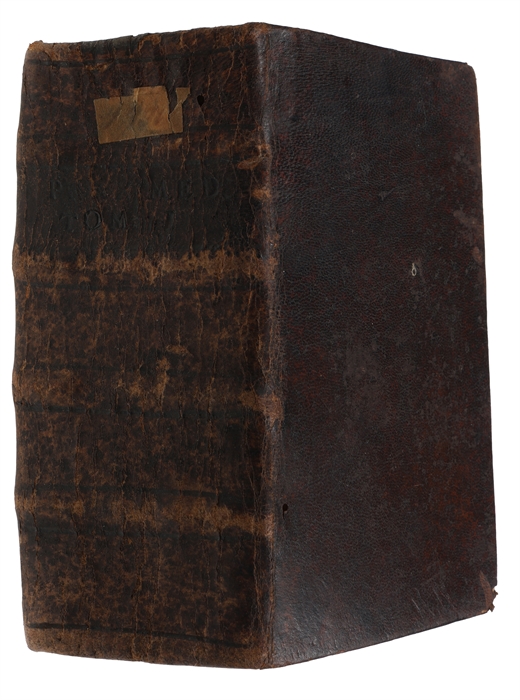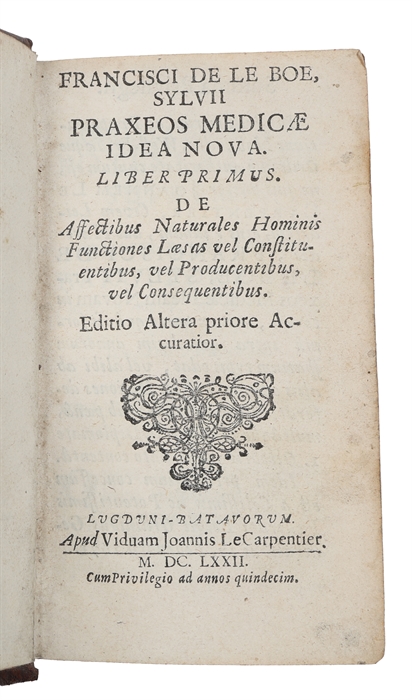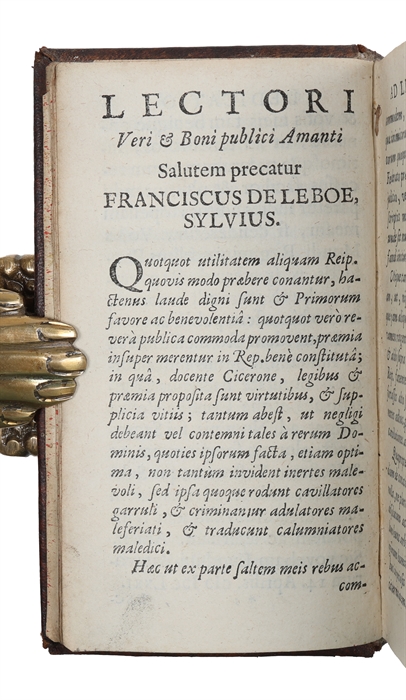LE BOË, FRANS DE. (FRANCISCUS SYLVIUS)
Praxeos medicae idea nova liber primus, de affectibus naturales hominis functiones laesas vel constituentibus... Editio Altera priore Accuratior.
Lugduni-Batavorum, Joannis Le Carpentier, 1692.
12mo. In contemporary full calf with four raised bands. Wear to extremities, leather on spine cracked. Old paper-label pasted on to top of spine. With a seven-line dedication to front free end-paper in contemporary hand (Given to a Johannis Castrup). Internally with light occassional marginal browning, but otherwise internally nice and clean. (46), 979, (125) pp. Wanting the engraved half-title.
Later edition of Sylvius’ most important works in which he explained that digestion is a result of the chemical reactions of acids and bases coming from pancreatic, stomach, and saliva secretions Franciscus Sylvius (1614 – 1672) was a Dutch physician, chemist, physiologist and anatomist) who was an early champion of Descartes', Van Helmont's and William Harvey's work and theories. He was one of the earliest defenders of the theory of circulation of the blood in the Netherlands “In 1658, after extended negotiations, Sylvius was persuaded to accept appointment as professor of medicine at Leiden at the high salary of 1,800 guilders–almost twice the usual amount. On 17 September 1658 he delivered his inaugural oration, on the knowledge of man, De hominis cognitione. Although as a rule bedside teaching was limited to two days a week, Sylvius received permission to take his students daily to the hospital, where he performed the autopsies himself. His own ideas on several medical subjects were defended by his students in public disputations, and in 1669–1670 he was vicechancellor of the university. The first volume of his main work, Praxeos medicae ida nova, was published the following year, but he did not live to see the second volume in print.” (DSB) Garrison & Morton 2197
Order-nr.: 61679



